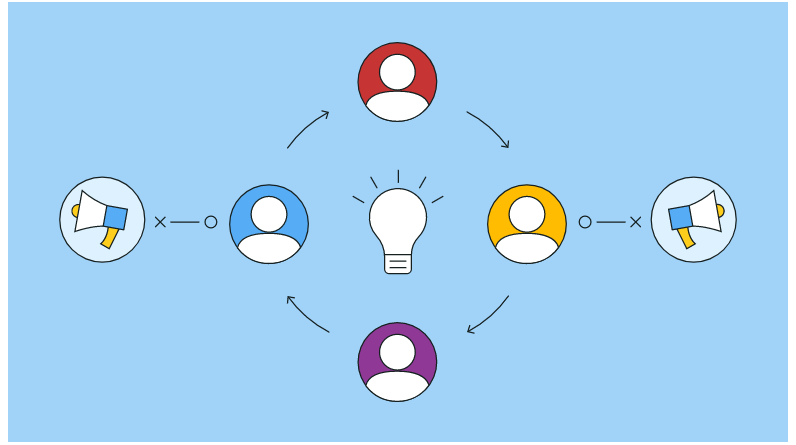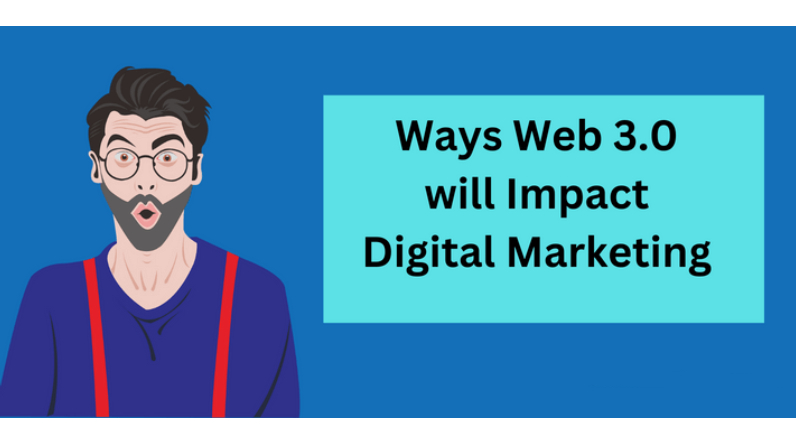As a result, digital marketers are constantly fighting an uphill battle to provide customers with increasingly tailored interactions. These difficulties will increase as the “Cookiepocalypse” draws near. Marketers are scrambling to find alternatives to third-party cookies as Google and other tech giants move forward with plans to phase them out.
When it comes to blocking third-party tracking, Firefox and Safari were pioneers. 63% of digital marketing leaders were having trouble personalising their company’s content before the decline of third-party cookies, according to Gartner. There is an inherent tension between personalization and privacy, as Gartner noted more recently, and “most customers want all of their interactions with a brand to be personalised.”
The personalization issue in digital marketing is just one of many for which Web 3.0 could provide a solution. When discussing the future of the internet, people often refer to Web 3.0, which may or may not include AI, the semantic web, and decentralisation. Web 2.0 is a radical departure from Web 1.0, the first iteration of the World Wide Web, which relied on static content and a centralised server network to deliver information to readers.
The internet did become more interactive as the transition from Web 1.0 to 2.0 began in the late ’90s. Blogs, wikis, and other forms of social media have made it easier than ever for businesses to incorporate user-generated content into their marketing strategies. However, the majority of the modern Web 2.0 relies on the aforementioned centralised cloud utility infrastructure.
What effect will Web 3.0 have on online advertising?
Web 3.0 is still developing, but it has the potential to advance the digital marketing industry and provide better service to online users. According to Gartner Digital Markets writer Shubham Gupta, “Web 3.0 offers better control over data privacy and security and helps deliver a more personalised user experience.” Here’s what to expect as Web 3.0 rolls out, if you’re a marketer.
1. Data privacy may be improved through decentralisation.
Blockchain technology, upon which Web 3.0 is built, has the potential to improve upon the current centralised data storage system by making data more secure and transparent. Because blockchain relies on an immutable ledger to record transactions, the data it stores is extremely secure and difficult to alter.
According to Jordan Gutt, customer experience manager and Web 3.0 lead at immersive technology platform provider Glimpse Group, the end result will be increased security but not necessarily increased data privacy. “He elaborated, “We can expect some features of Web 3.0 to promote security and data privacy, like the ability to control a Web 3.0 wallet by enforcing data confidentiality and integrity since each transaction requires the owner of the wallet to’sign’ it. To put it another way, this idea will allow users to grant permission to businesses and advertising agencies to use their data, while also providing them with the opportunity to profit from such use.”
2. Standards for protecting personal information stored online may be tightened.

However, Scott DePeralta, principal consultant at his eponymous sales and marketing consultancy, speculates that Web 3.0 may also usher in more stringent rules and regulations for the collection and storage of user data and the way in which data is used for marketing purposes. Without people’s knowledge or permission, businesses might not be able to collect and use their data at will. DePeralta speculated that this “could lead to more creative solutions for gathering customer insights without relying on personal information” like cookies or IP addresses.
How well-protected users’ personal information will be in the age of Web 3.0 is another important question. DePeralta hypothesised that existing regulations, such as the EU’s General Data Protection Regulation, could force social networks to reevaluate their business models in order to comply with privacy and protection laws or face closure. He also noted that the power of large technology firms may be weakened in some markets as a result of the opportunities presented by Web 3.0 to smaller, more nimble rivals.
3. The Semantic Web Allows for Greater Customization
Web 3.0’s semantic targeting could provide the missing piece for digital marketers to personalise content in light of the impending demise of the third-party cookie. With the help of semantic web technologies, users can easily build their own online data stores, vocabularies, and data-processing rules.
According to Layla Acharya, CEO of online e-learning consultancy Edwize, companies can target consumers based on their online activities, interests, and behaviours, resulting in more personalised campaigns and more accurate targeting. Also, “marketers will be able to track consumer engagement and interactions,” so that they can “gain better insights into their target audience,” as she put it. “As a result, advertisers will be able to hone in on their target audience and create campaigns specifically for them. More successful marketing campaigns and higher return on investment are the end result.”
Also Read : Capturing carbon emissions and the next ecological step
4. Freedom of expression boosts advertising reach.

One of the difficulties for marketers is making sure their content is seen by enough people on social media. Because of the distributed nature of Web 3.0, online marketers will have greater leeway in terms of what they can publish, which could increase their audience.
According to Rephrase Media’s founder and chief writer Matthew Ramirez, “many marketers have been frustrated by the restrictions and algorithms of social media platforms, which have made it difficult to reach audiences and grow their brands.” “With the arrival of Web 3.0, businesses will no longer need to rely on social networking sites to spread their messages to consumers. There will be no need for them to consider algorithms or advertising budgets as they craft content that speaks directly to their intended demographics.” A direct line to the consumer is essential for successful marketing, he said “collect customer opinions in real time. ”
In addition, “decentralised platforms, such as those built on blockchain technology, can allow for greater autonomy and control over the distribution of content, as they are not controlled by a single entity or organisation,” as stated by Dan Riley, founder of Spotify Unlocked. He warned that the increased freedom of expression made possible by Web 3.0 could eventually lead to increased censorship or controls on online material, as is the case with all technologies.
Riley argued that the freedom of individuals to share and distribute content as they see fit could be limited if Web 3.0 technologies were used to create more centralised and controlled platforms for sharing and distribution.
5. Upgrades are necessary for digital marketing strategies.
If businesses want to take advantage of Web 3.0, they need to begin implementing new digital marketing strategies immediately. Glimpse’s Gutt emphasised that one step marketers need to take is incorporating a Web 3.0 wallet into existing products, noting that this initial strategy “will both educate new people about the benefits of Web 3.0 and also create a larger base of Web 3.0 users.”
Furthermore, non-fungible tokens are trending upward, but they will be rebranded as “digital assets” or “digital collectibles,” as predicted by Gutt. Instead of treating them as a gamble, businesses can use these tokens as a direct channel to their customers thanks to the blockchain. He suggested that businesses “own the relationship” with their clients rather than having it “mediated through another third-party app like Instagram or Twitter.”

